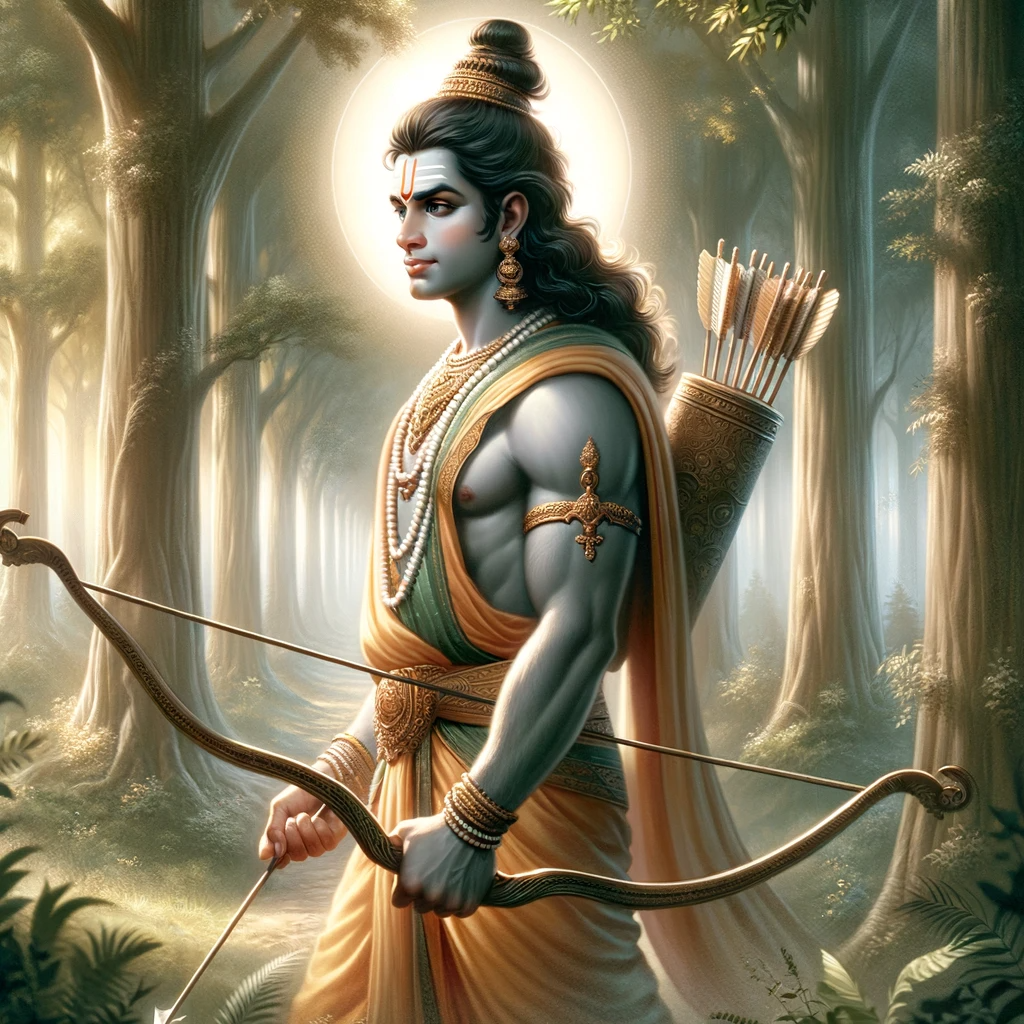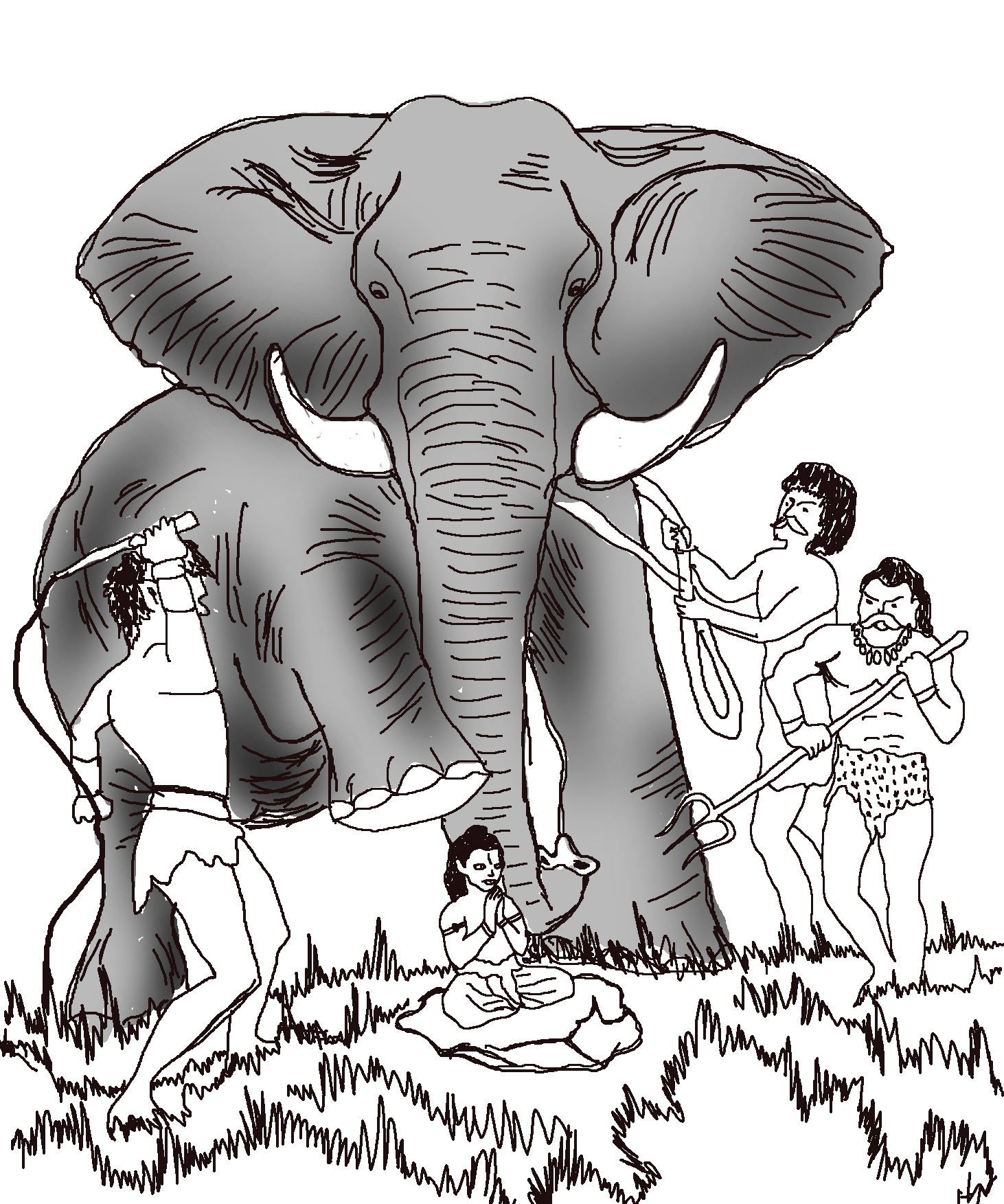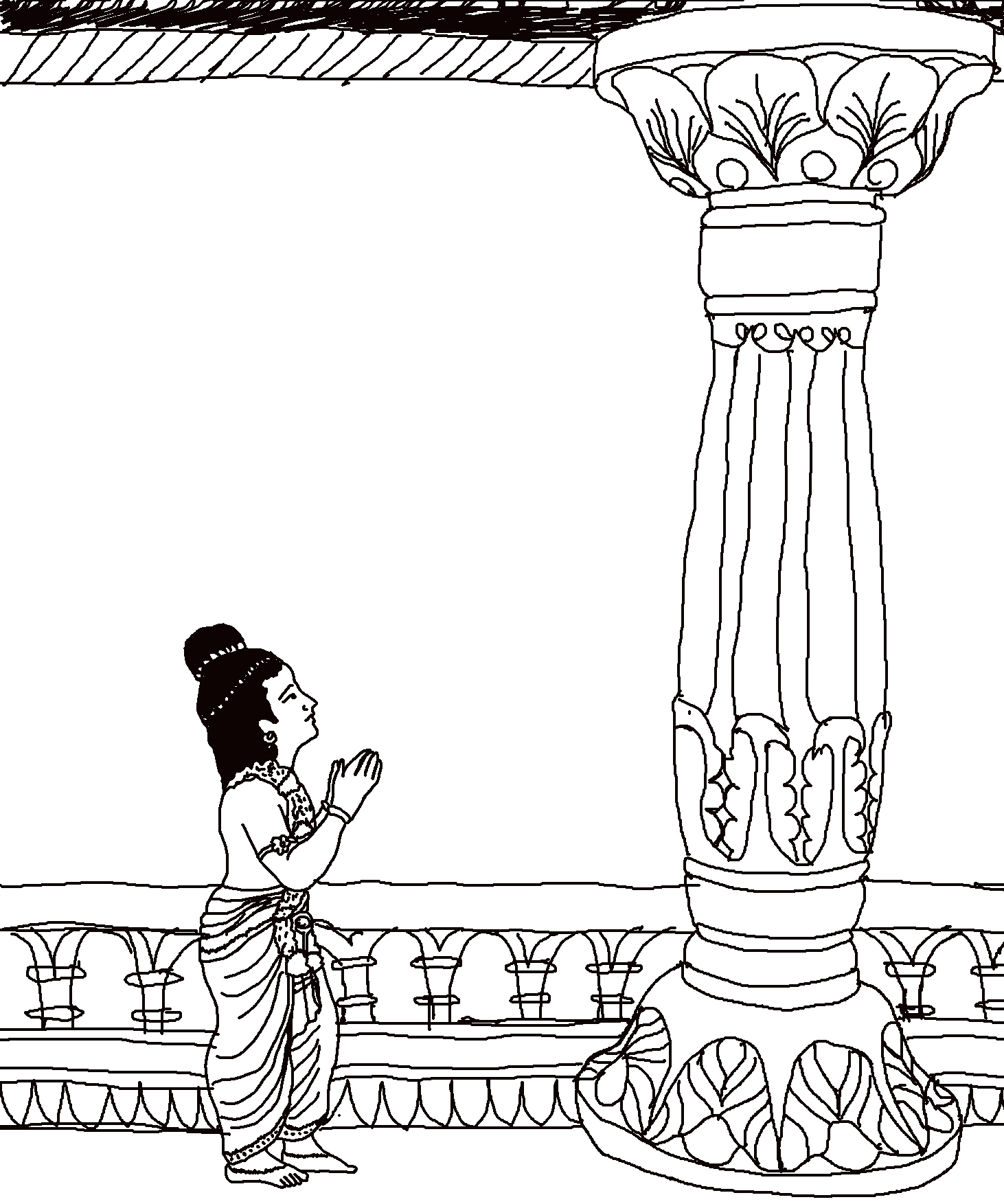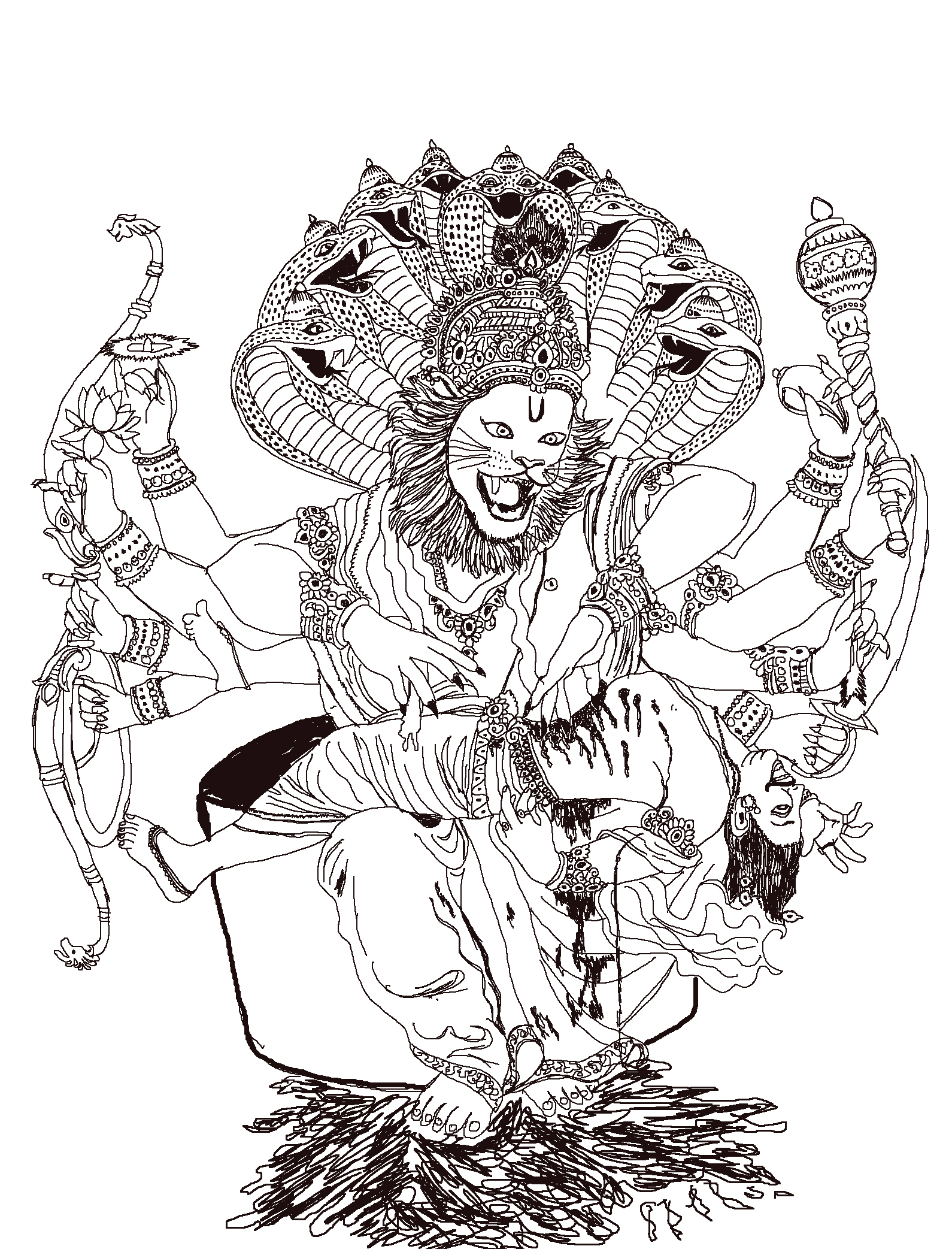The Enduring Legacy of Lord Rama: Symbolism and Life Lessons

Even though Lord Narasimha is often portrayed as the fierce and angry slayer, his story is not rooted in violence but in the love and devotion of a child - Prahlad.
The fierce fourth avatar of Lord Vishnu, Narasimha, incarnated to save the earth and his beloved devotee Prahlaad from the atrocities of the cruel demon king, Hiranyakashipu.
Hiranyakashipu was the brother of Hiranyaksha, the demon who was slain by the Varaha avatar of Lord Vishnu. Ever since Lord Vishnu killed Hiranyaksh to save mother earth and the rest of the world, Hiranyakashipu swore him as his enemy and decided to kill anyone who worshipped Lord Vishnu.
Hiranyakashipu wanted to establish himself as a God and ordered that no one in his Kingdom shall worship Lord Vishnu - or they will face death. But as destiny would have it, the biggest devotee of Lord Vishnu was born nowhere but in the very house of Hiranyakashipu - as his son.
To know in what conditions Lord Vishnu incarnated himself as Narasimha and how it is related to Prahlada, we have to go back to the time when Hiranyakashipu swore Narayana as his enemy.

Lost in his anger, he attacked gods, but failed every single time and decided that he must acquire powers and boons to be able to defeat everyone - especially Lord Vishnu. He started severe penance with the intention of gaining a boon of immortality from Lord Brahma.
After years of austerity and penance, he pleased Lord Brahma to grant him a boon. When Lord Brahma asked him to ask whatever he wanted, Hiranyakashipu asked for immortality. Lord Brahma told him that the boon of immortality went against the laws of nature - everything born must die, so even Lord Brahma can’t grant him immortality.
When prompted by the Lord to ask for another boon, Hiranyakashipu decided to ask for a boon that would make it impossible for anyone to kill him while granting him great powers at the same time. And thus he demanded,
“Grant me the boon such that no living being created by you will be able to kill me; that I will not die neither inside any residence nor outside any residence; that I shall die neither at the daytime or at night; that I shall die neither on the ground nor in the sky; that he shall not be killed by any weapon, human or animal; grant me that no demigod, demon or snakes from lower planets shall be able to kill me.”
As he did not directly demand immortality, Lord Brahma granted this boon to Hiranyakashipu. Becoming virtually invincible and powerful above every other being, he became recklessly cruel.

On the other hand, while Hiranyakashipu was doing his penance, Lord Indra attacked his Kingdom and tried to kill the unborn child of Hiranyakashipu and his wife Kayadhu. He abducted Kayadhu but she was rescued by the divine sage Narada who rebuked Indra for harassing an innocent woman.
Sage Narada took Kayadhu under his protection as long as Hiranyakashipu was in his meditation of Lord Brahma. While Kayadhu was with Sage Narada, she and the unborn child in her womb regularly heard the name Lord Vishnu getting chanted.
The effect of the chanting was such on the unborn child that he grew up to be a dedicated devotee of Lord Vishnu. When Hiranyakashipu found out about his son’s devotion to Lord Vishnu, he was very upset.
At first, he tried his best to change Prahlad’s mind and get him to accept his father as the ultimate and undefeatable God, but when all his attempts to convince Prahlad became useless, he decided to kill Prahlad.
Hiranyakashipu made many attempts to kill his son but always failed. Prahlad was fed poison, thrown in front of a mad elephant, and attempted to be burned to ashes, but each time his life was saved by Lord Vishnu.

All the time previously, Hiranyakashipu had ordered someone else to kill him, but in the end, he was so enraged that he decided to kill his son with his own hands. He asked Prahlad in anger and disappointment about his all-pervading God. “Where is your beloved god Vishnu?”
“In everything, every particle of this universe,” replied Prahlad. In anger, Hiranyakahipu pointed to a pillar nearby and asked Prahlad if his God was also in that pillar, to which Prahlad replied with a ‘yes.’
Hearing this, Hiranyakashipu smashes the pillar with his mace and asks Prahlad to call his revered Lord Vishnu to save his life. As Prahlad prayed to Lord Vishnu, the pillar split open, and from there emerged Narsimha a half-man, half-lion being with a ferocious roar.
A raging Narasimha loudly announced how he was killing Hiranyakashipu without violating the boon of Lord Brahma. Narasimha was not a being created by Lord Brahma; he was neither a full human nor a full animal - he was both of them in one body; he was neither a god nor a human, instead, he was a form of god incarnated as human.
Hiranyakashipu was killed neither during daytime nor at night but during dusk; he was killed neither outside nor inside a residence - he was killed at the threshold of a residence. He was killed neither at the ground nor in the sky - he was killed at the thighs of great Narasimha. He was not killed by any weapon but instead split open by the sharp claws of Narasimha.
Narasimha’s avatar of Lord Vishnu signifies hope amid darkness and how if you have faith, you will make it past the most difficult and impossible situations.
Narasimha represents the combination of ferocity and extreme intelligence as he overcame Brahma’s boons while at the same time killing Hiranyakashipu with the ferocity of a lion.
Lord Narasimha symbolises a balance between two opposites as he falls in between two extremes in all conditions. He is neither day nor night, neither human nor animal, neither sky nor ground, neither inside nor outside, neither a god nor a demon.
Hiranyakashipu symbolises narcissism and arrogance while Prahlad symbolises delight and happiness. The whole story of Narasimha represents how we must fight our own ego and narcissistic tendencies by taking a balanced and insightful approach towards life.
It’s through balance and harmony that we may be able to liberate joy and happiness that is confined by our own ego.
Get weekly updates on the newest articles, quotes and newsletters right in your mailbox. Subscribe now
